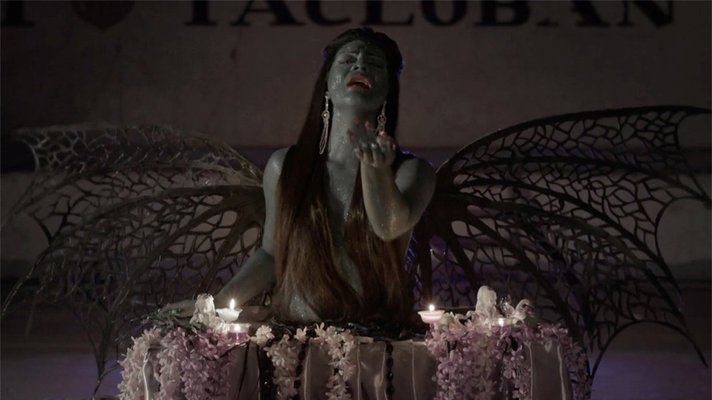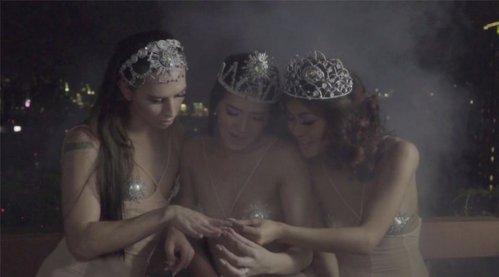-
Details
- Date
- 2015
- Media category
- Time-based art
- Materials used
- single-channel digital video, colour, surround sound
- Edition
- 2/3 plus 1 artist proof
- Dimensions
- Credit
- Purchased with funds provided by the Contemporary Collection Benefactors 2021
- Location
- Not on display
- Accession number
- 145.2021
- Copyright
- © Club Ate
- Artist information
-
Club Ate
Works in the collection
- Share
-
-
About
Justin Shoulder and Bhenji Ra are artists and performers who possess an international reputation while remaining active participants within Sydney’s performing art scene, appearing regularly in both visual and performing art events. While they each have their own independent practices, the two founded the Club Ate collective in 2014 and have worked collaboratively on projects that draw on their shared experiences and personal relationships as queer, bi-cultural Filipino-Australians. Traversing, photography, dance, performance, video work and community activations including club events, their methods of art making are characterised by the values of shared authorship, collective action and self-representation.
'Ex Nilalang' is a cumulative performance-video project that transforms urban myths and traditional Filipino folklore into stories of queer resistance. The first episode 'Balud' features Jai Jai, a performance collaborator from Tacloban in the Philippines. Jai Jai transforms into a mananangaal – a monstrous folkloric woman who detaches the top half of her body from the bottom and grows huge bat-like wings. Mananangaal are often seen as malevolent, but this filmic portrait seeks to reimagine her through pathos and empathy. She sings the waray song ‘Balud’, in mourning for the loss of parts of her body, but this lament is also a song of resistance.
The subsequent episodes extend this re-narrativisation, introducing evocations of contemporary cultural figures. 'Dysebel' reimagines the Filipino pop culture character from the fantasy drama television series of the same name, meditating on the experience of the bakla/trans girl from metropolitan Manila in parallel with folklore of the siren/mermaid. The sirenyas take authorship of this work, filming and directing it. Meanwhile, the third episode 'Lolo ex machina' introduces a mythical creature that is an ancestral jeepney spirit. Justin Shoulder’s lolo (grandfather) was a jeepney driver and dance instructor. Shoulder’s memories of him are passed down by his mother’s accounts as all material documentation was lost in a series of floods. This video portrait shares a conversation with his spirit mediated by live automotive figures.
In the fourth episode, a hyper-real aesthetic takes hold and we enter a virtual landscape where the cosmos has become computer generated. This video retells the origin story of the Philippines as encapsulated in the story of Maganda and Malakas. Here, the contemporary bleeds into the creation myth as a form of generative transgression.
-
Exhibition history
Shown in 1 exhibition
New Eden, ArtScience Museum, Singapore, 21 Oct 2023–03 Mar 2024



